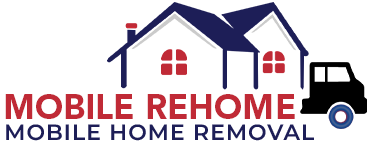Removing a mobile home involves various costs that can vary depending on several factors. Whether you’re upgrading to a new model, selling your property, or simply relocating, understanding the potential expenses associated with mobile home removal can help you budget effectively and avoid surprises. In this article, we’ll break down the different costs involved in mobile home removal and what you should expect.
1. Factors Affecting Mobile Home Removal Costs
The cost of removing a mobile home can be influenced by a variety of factors. Here’s a look at the key elements that can affect the overall expense:
Size and Condition of the Mobile Home
- Size: Larger mobile homes generally cost more to remove due to increased labor and equipment requirements.
- Condition: Homes in poor condition may require additional labor and care, increasing the overall cost.
Location and Accessibility
- Location: Costs can vary based on geographic location, with urban areas often being more expensive than rural ones.
- Accessibility: Difficult access to the site or challenges such as narrow roads and limited space can increase removal costs.
Permits and Regulations
- Permitting Fees: Many areas require permits for mobile home removal, which can add to the cost.
- Regulatory Compliance: Meeting local regulations and compliance requirements can impact overall expenses.
Additional Services
- Utility Disconnection: Costs for disconnecting utilities such as water, electricity, and gas.
- Site Preparation: Expenses related to clearing the site and preparing it for removal.
2. Breakdown of Mobile Home Removal Costs
Here’s a general breakdown of what you can expect to pay for mobile home removal:
1. Professional Removal Services
- Basic Removal: $3,000 – $5,000
- This typically includes labor, equipment, and transportation for standard mobile home sizes and conditions.
- Complex Removals: $5,000 – $10,000+
- This can include homes that are larger, more damaged, or located in difficult-to-access areas.
2. Permits and Fees
- Permit Fees: $100 – $500
- Fees vary depending on local regulations and the type of permit required.
- Inspection Fees: $100 – $300
- Some areas may require pre- and post-removal inspections to ensure compliance.
3. Utility Disconnection and Cap-Off
- Utility Disconnection: $150 – $500
- Costs associated with shutting off and disconnecting services like water, electricity, and gas.
- Cap-Off Services: $100 – $300
- Fees for capping off utility lines to prevent leaks or accidents.
4. Site Preparation and Cleanup
- Site Preparation: $200 – $1,000
- Includes clearing debris, removing obstacles, and preparing the area for removal.
- Site Cleanup: $300 – $800
- Costs for cleaning up any remaining debris or performing land restoration after removal.
3. Additional Considerations
1. DIY vs. Professional Removal
- DIY Removal:
- Costs can be lower if you handle the removal yourself, but this requires significant expertise, equipment, and time.
- Typical DIY costs: $2,000 – $5,000 (excluding equipment and labor).
- Professional Removal:
- Generally recommended for safety and efficiency, though it can be more expensive.
- Includes expert handling, equipment, and compliance with regulations.
2. Salvage and Recycling
- Salvage:
- Removing valuable materials or components from the mobile home can offset some of the removal costs.
- Salvage value: Varies based on materials and market demand.
- Recycling Fees:
- Some areas charge fees for recycling or disposing of certain materials.
- Fees: $100 – $500 depending on the materials.
3. Unexpected Costs
- Hidden Damage:
- Unexpected issues such as structural damage or hazardous materials may increase costs.
- Delay Costs:
- Delays due to weather, permit issues, or other factors can lead to additional expenses.
4. How to Manage Costs
1. Get Multiple Quotes
- Shop Around: Obtain quotes from several removal services to compare pricing and services.
- Ask for Detailed Estimates: Ensure quotes include all potential costs to avoid surprises.
2. Plan Ahead
- Budget for All Expenses: Include costs for permits, disconnection, site preparation, and any additional services.
- Prepare the Site: Minimize additional costs by ensuring the site is clear and accessible.
3. Consider Financial Assistance
- Check for Grants or Assistance: Some local or state programs offer financial assistance for mobile home removal or demolition.
Conclusion
Understanding the costs associated with mobile home removal is essential for effective budgeting and planning. By considering factors such as size, location, permits, and additional services, you can better manage your expenses and ensure a smooth removal process. Whether you choose to handle the removal yourself or hire professionals, being informed about potential costs will help you make the best decisions for your situation.
If you have any questions or need assistance with mobile home removal, don’t hesitate to reach out to local experts or removal services for guidance and support.

